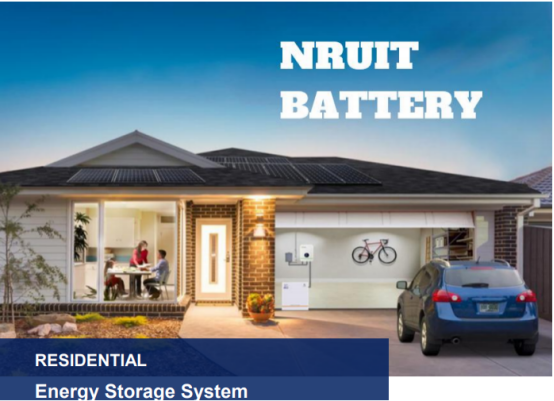As the world is transitioning into a clean energy era, the demand for Lithium batteries is high. Lithium iron phosphate batteries are a special type of Li-Battery that offers zero to no maintenance, longer lifespan, lightweight structure, and longer charge cycles. These advantages of lithium iron phosphate batteries make them one of the best long-term investments.
However, some news of lithium iron phosphate batteries exploding in the past few years can concern a new user. Do they explode? Is it safe to use lithium iron phosphate batteries? And what steps can we take to prevent it from happening?
In this article, we will mainly discuss the safety of lithium iron phosphate batteries and the suggestion to prevent explosions or fire.

The safety of lithium iron phosphate batteries
Lithium iron phosphate batteries are safer than many other energy storage solutions on the market due to their excellent chemical stability and good thermal performance. The lithium iron phosphate batteries are completely nontoxic and can be disposed of easily than many other battery solutions.
The design of the lithium iron phosphate batteries also makes them extremely safe to use in extreme temperatures.
The lithium iron phosphate batteries designed with:
- Built-in safety fuse
- Explosion-proof steel cover
- Great over-temperature protection
Moreover, during the design phase of the lithium iron phosphate batteries, they go through:
- Impact test
- Overcharge test.
- Short circuit test
- Open circuit test
- Temperature test
- Drop test
- Forced internal short circuit test
- Low-pressure test.
Only after getting satisfactory results, the batteries go into mass production.
The reason for the existing dangerous
Although the lithium iron phosphate batteries are completely safe to use in normal uses, nothing is absolute when it comes to extreme cases. Here are some of the reasons why there could be a chance of explosion.
- Overcharging
Overcharging is always one of the biggest issues, regardless of the type of battery. If you keep the battery charged for a way longer than needed, the power source will force additional charge into the battery even when maximum voltage is reached. This situation will cause internal heat to produce.
If the battery is kept insulated over the charged state for a long time, the temperature will rise, and heat energy will keep building up. As a result, the battery might catch fire.
- The material of the battery
The preparation of the material also plays a significant role in the thermal and structural stability of the battery. As the lithium iron phosphate has internal iron oxide, the iron element in the battery must be a positive divalent. That is why the manufacturer must be extremely cautious during the sintering reaction.
- The placement of the battery
The fault only goes to the designated area of charge. Whenever a battery is being charged up, it produces a small amount of heat. Therefore, we must make sure that the area is noncombustible. If the batteries are charged in an explosive area, even the smallest heat generation can cause the area to catch fire.
How to prevent the problem
- The proper charger
The best course of action to keep your batteries from overcharging is using the proper charger. Depending upon your battery type and voltage rating, you should always have a proper charger from your manufacturer. The solution will prevent your batteries from overcharging, heat generation and always ensure a steady charging state.
- The suitable temperature
Always keep your battery stored in a place with optimal temperature. The allowed temperature for your battery stage depends heavily on how long you plan on storing them. A good rule of thumb is to keep your lithium iron phosphate batteries stored in a place with 15 °C to 30 °C temperature.
In addition, make sure to charge your batteries when they cool off. After a heavy and long use session, your battery may generate some heat. It is always a good idea to avoid charging during that time.
- A good battery management system(BMS)
If the battery pack consists of more than one lithium iron phosphate cell, the BMS monitor will stop charging at peak voltage.
Good quality BMS will not only stop overcharging but also charge up each cell separately. The BMS will detect which specific cell is providing inaccurate readings or malfunctioning. The function will prevent any explosion or fire.
- A good manufacturer
Always use lithium iron phosphate batteries from a good manufacturer. The battery from a reliable manufacturer will ensure the pre-production tests are completed correctly.
For the best battery solution, make sure to check out nRuiT-Power. nRuiT-Power is a CATL authorized energy storage system integrator looking to provide the best lithium battery energy storage solution for the end-user.
How nRuit can help you

nRuiT battery storage manufacturer brings clean, safe, affordable energy for you. The advantages of the nRuiT lithium-ion battery are as follows long life, safe use, fast charging, high-temperature resistance, and large capacity.
Our residential energy storage system provides maximized self-consumption and stable emergency power backup. Power Porter is a battery energy storage system that perfectly suits households.
If you are looking for a professional and reliable battery storage manufacturer, contact us!

